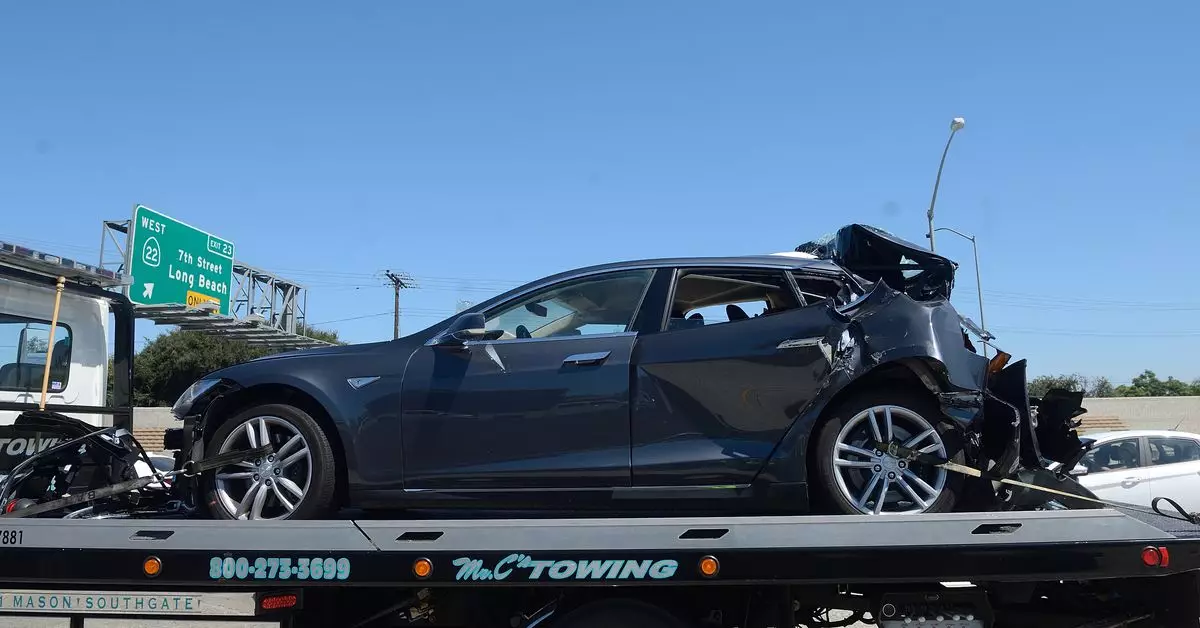As the landscape of transportation technology continues to rapidly evolve, the regulatory frameworks governing autonomous vehicles (AVs) are also subject to significant shifts. The Biden administration implemented rules mandating the reporting of accidents involving autonomous and partially autonomous vehicles. However, with the transition team of Donald Trump signaling a potential rollback of these regulations, the future of AV governance now hangs in the balance. This article examines the implications of rescinding the crash reporting rule, particularly for major players in the industry like Tesla, and what it signifies for transportation safety and innovation.
In 2021, the National Highway Traffic Safety Administration (NHTSA) established a Standing General Order (SGO) requiring manufacturers of AVs to document and report incidents involving their automated driving systems. This policy was intended to foster transparency and accountability in a domain where technology holds the promise of improving road safety yet has been entangled in high-profile accidents. By demanding documentation within 30 seconds of an incident, the SGO aimed to arm regulators with crucial data to assess the effectiveness of emerging technologies in real time.
One of the primary concerns behind this requirement was understanding whether new technologies genuinely enhance vehicular safety or whether the adoption of drivers’ assist systems merely creates a false sense of security. Tesla, in particular, has been scrutinized under these guidelines. With their Autopilot and Full Self-Driving features—categorized as Level 2 systems—they have recorded a staggering number of accidents compared to competitors.
Since the implementation of the crash reporting law, Tesla has reported over 1,500 incidents to the federal government. Part of the reason behind the disproportionate numbers can be attributed to Tesla’s larger market share in vehicles equipped with these capabilities. However, these statistics have also presented significant operational challenges for the company. The NHTSA has launched numerous investigations into Tesla’s AV technology, responding to the troubling data detailed in the mandated reports.
Insider perspectives suggest that Tesla executives view the current regulations as burdensome, with some expressing that a change in administration is the only viable route to alleviate this regulatory pressure. Herein lies a complex intersection of policy, technology, and corporate strategy; a regulatory rollback could remove the weight of scrutiny that Tesla currently bears, allowing for a potentially faster rollout of its technologies without the shadow of investigatory oversight.
Should the Trump administration abolish the crash reporting requirement, the implications could reverberate through the industry. For Tesla, the removal of such mandates could bolster its competitive advantage, as it could report fewer negative incidents and potentially accelerate its plans, such as the anticipated rollout of its robotaxi by 2026. Musk’s deep financial backing of Trump adds a layer of complexity, as the intertwined interests of politics and business can shape regulatory environments to benefit certain stakeholders.
However, a significant risk of deregulation emerges: the potential compromise of consumer safety. Shifting the regulatory framework could lead to a reduction in crucial data that provides insights into the operational safety of AVs. As concerns about the reliability of these systems grow—especially in light of fatal accidents involving autonomous vehicles—scrapping reporting requirements may foster a lack of transparency that could endanger public safety.
The impending changes in the regulatory landscape for automated vehicles pose significant questions about the balance between fostering innovation and ensuring safety. The current crash reporting mandates, while arguably burdensome for companies like Tesla, provide essential oversight that can protect consumers and inform future policy developments. As the Trump administration reevaluates these rules, stakeholders in the transportation sector will need to grapple with the ramifications of a deregulated environment.
As industry giants position themselves for upcoming shifts, the stakes are high, and the conversations surrounding autonomous vehicles must consider both the potential for technological advancement and the imperative of public safety. Navigating this terrain requires diligence, foresight, and a commitment to maintaining integrity in the rapidly shifting world of transportation technology.

